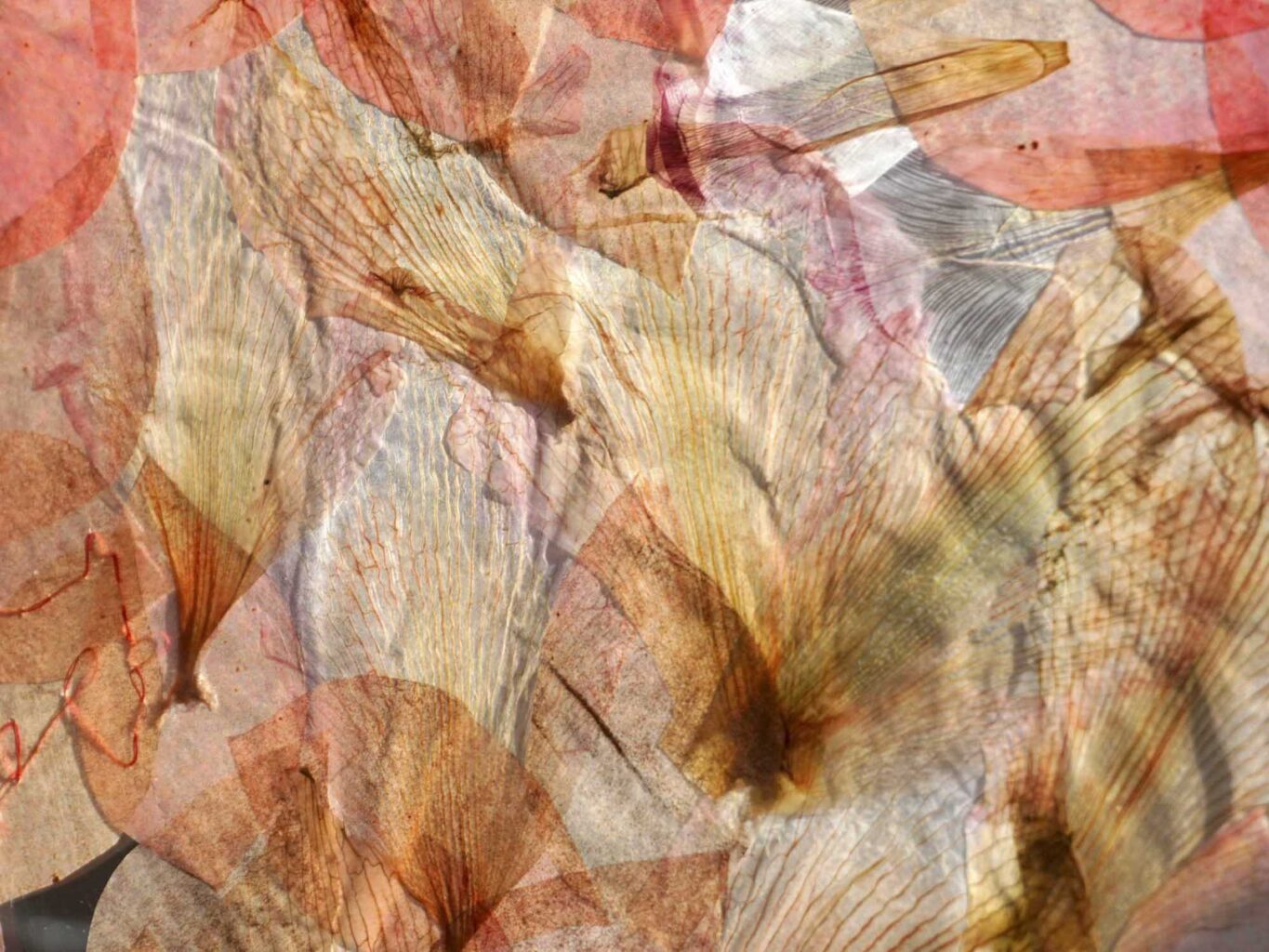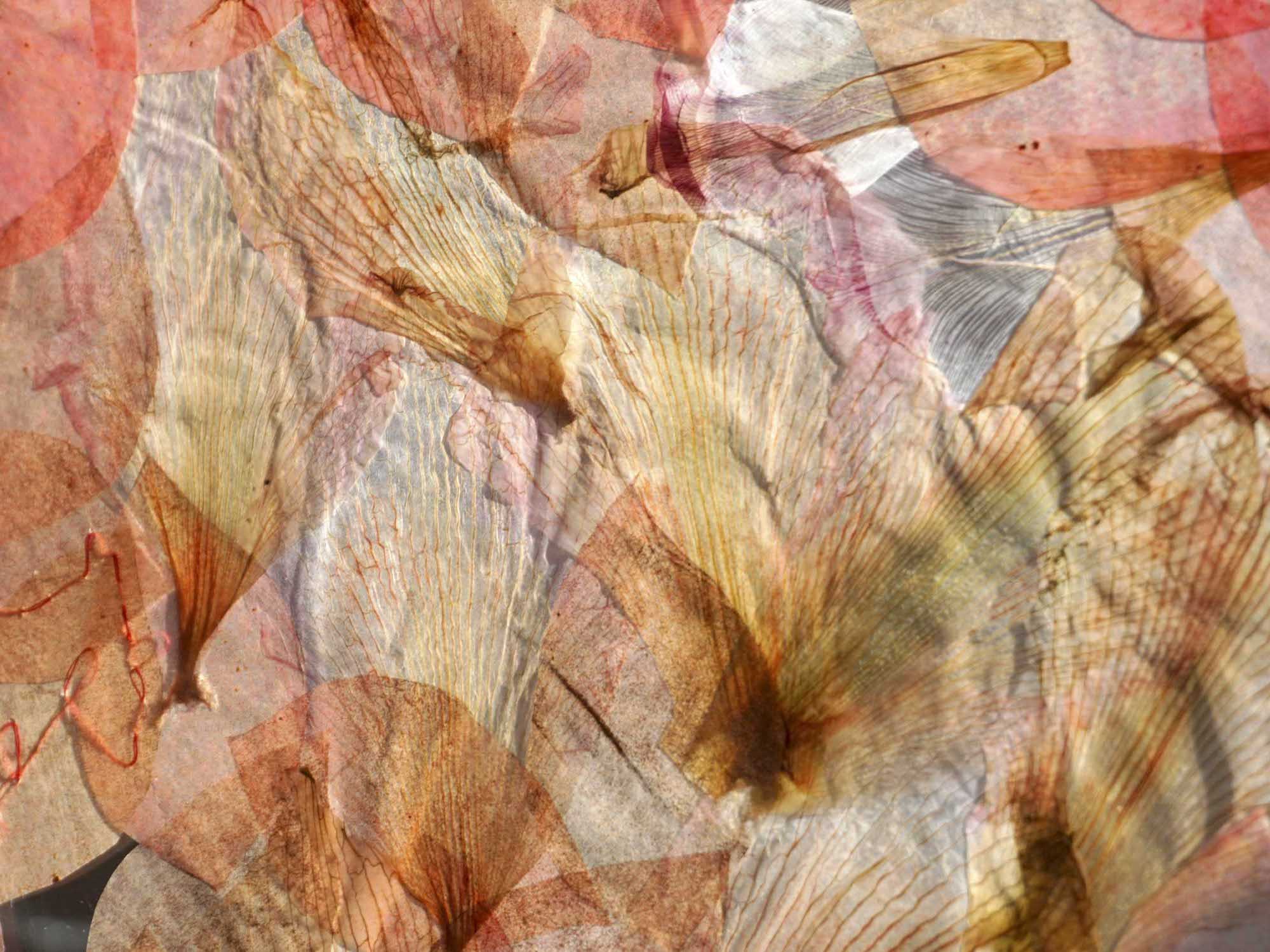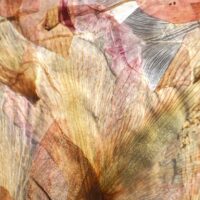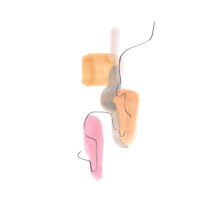Tenderness1 manifests itself in many different ways in different layers of our being.
Tender Thoughts
Thoughts are relationships between two or more things. Tender relationships are potential, changeable, emerging, and fragile. Tender thoughts do not define; they describe possibilities and questionings; they seem to be: is it not so, that something is going on here between A and B? Or: today, it feels like something marvelous will unfurl. Also, doesn’t every death make us tender? Aware, receptive of the unsolidified, the dissolving, of that which is finer than air? Tender thoughts are attentive to the world ether. Tenderness is the presence of inner worlds. Tender thoughts are permeable; they apprehend what cannot be apprehended.
Philipp Tok
Not Oppressing
Tenderness—sensing what is living and not oppressing it. To embrace it softly, without squeezing. To let it be, yet to still have a relationship. A fine substance, permeable, but strong, benevolent, strengthening, enlivening. It needs awareness, attentiveness, and sensing in order to exist.
Michaela Haider
Both Tender and Strong
When my baby was still very small, people sometimes reflected that they perceived me as tender. A mother with a child is a model picture of tenderness. And I also felt tender—tender in the process of being reborn as a new mother, tender through the groundbreaking physical transformations of pregnancy, birth, and recovery, which all occur in a very short time. At the same time, this phase of life is an uncannily ruthless force. Regardless of your lack of sleep, to be there for another being, to prepare and hold a space for it, to accompany it through feelings, and to be a rock among the surging waves. Never before in my life have I needed to call up such forces of uprightness within myself on a daily basis.
Hanna Sharma
Tender Death
The rapeseed will be in bloom in a few weeks. Then, I will go to the Baltic Sea, to a beach that lies untouched in the early twilight. The water will be so transparent and clear that I will be able to see every single grain of sand. I will walk into the sea. Step by step, as quietly as I can so as not to disturb the still sleeping terns. I will go far, because the sea is very shallow here. The birds will still be silent—the cuckoo will call soon. The scent of jasmine wafts far and wide.
The sea floor will change as I approach the area where the seaweed grows. I will be up to my waist in water. Slowly, it will get lighter, and the day will awaken. The wind will rise, and the waves will cradle me. I will become one with the sea. I prepare myself. Spike the bait—a small double hook, freshly sharpened. Garfish are greedy in the days of their spawning season. They swallow the bait deep. Each fish that I catch this way, I have to kill.
Belone belone lies gleaming silver in my hand—an agile, soft-skinned animal. I look him in the eye. Thank him. Stab him in the heart. His blood is lukewarm and flows over my hands into the sea.
By late morning, I will have killed many fish.
Slowly, humbly, and quiet, I will walk back ashore.
Katharina Müller

Black and Pink
My mother wore black all her life (at least, when I knew her). When she was dying, she realized, incidentally that pink is a healing color. Why didn’t I notice that earlier? We buried her in her favorite rose pink sweater, and, sometimes, I wear her pink necklace, when I feel like healing.
Estella Mare
Tender Green
For a farmer, it is one of the most beautiful feelings to look out at the field where you have sown your seeds and then suddenly see this truly tender green sprouting up. It is a moment of reverence. We have learned to take this for granted, overlooking the great miracle that it is and that it represents: The work of the gods in partnership with human beings.
Eduardo Rincon
Color of Shyness
Always and everywhere my life comes to meet me.
And I don’t spontaneously have the feeling that it is my life, always and everywhere.
I see presence and belonging, shyly, as the great riddles, often remaining unrevealed, above all, between human beings.
They grow—
and can become bright—
through presentiating.2
All appearance, all that arises through the senses, is permeated with this riddle character.
In the perceived image that takes on a sensibly experientable presence in memory, the riddle becomes a feeling.
In the feeling of memory, from out of which presentiation becomes possible, a tender seed forms. It is sensitive to all internal and external events that belong to it, above all, human ones.
In the belonging that grows from out of this relationship, I hear a golden tone in the tender rose pink of shyness when in the presence of human beings.
Bodo from Plato
Tender Will
Oslo Opera House. The architect stood before us and talked about a shaping and design that is sought for underneath the skin. I heard this and was immediately wide awake. He said, “If one does it, then one senses it when it’s there. You have to create an intimacy, and you need a group; you can’t do it alone.” He talked about the Carrara marble, how it sounds so bright yet carries well, about the sounds that break upon the surfaces, about the building’s encounters with air and water, about the speaking of the materials, and that one must tend to them with ease, about simulated sunlight, about oak wood, about the arts that permeate architecture, the artists who co-create, about the analog and digital design processes. He spoke about how he wanted to create a slowing-down with his buildings, of the implications of the monolithic Goetheanum building, and how impressed he was by it. I asked him whether he could draw it for me and show this “going underneath the skin.” He drew in my small, dark blue book and showed me a diagram, his search on the horizon, above which the sun rises and again sets, anchoring the Now while being caught up in space and time, in past and future, in visible and invisible forces. And he led across the sloping marble landscape up to the end of the roof, where it was bounded by the sky. Tender will?
Elke Schmitter
Translation Joshua Kelberman
Footnotes
- The German word Zart can be translated in English as: tender, delicate, gentle, fragile, flimsy, dainty, soft, frail, wispy, feathery, subtle, mellow, etc. I have chosen “tender” and “tenderness” here, in order to maintain consistency throughout all the pieces’ various contexts.—Translator’s note.
- presentiate – to make present; presentiating – the act of making present.













